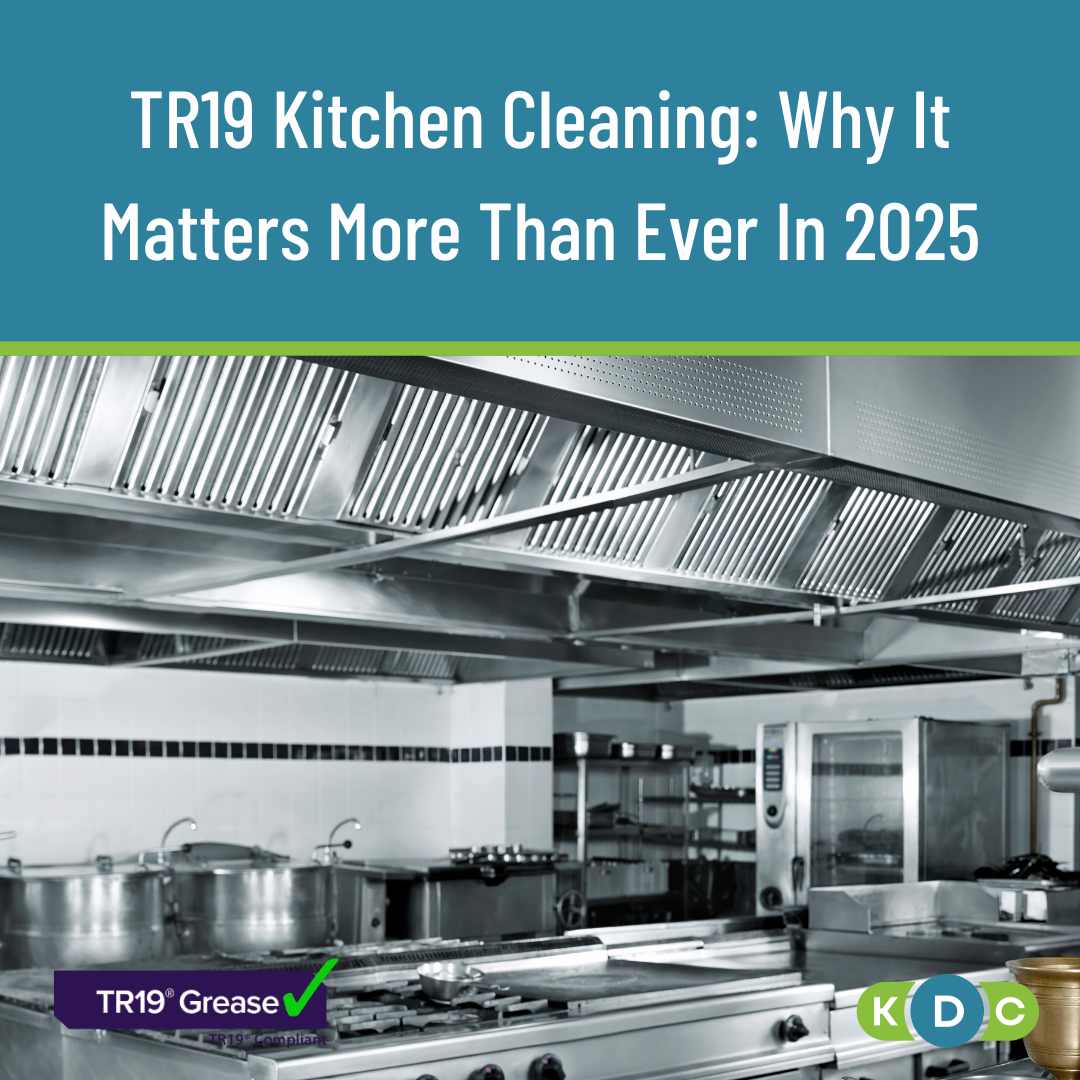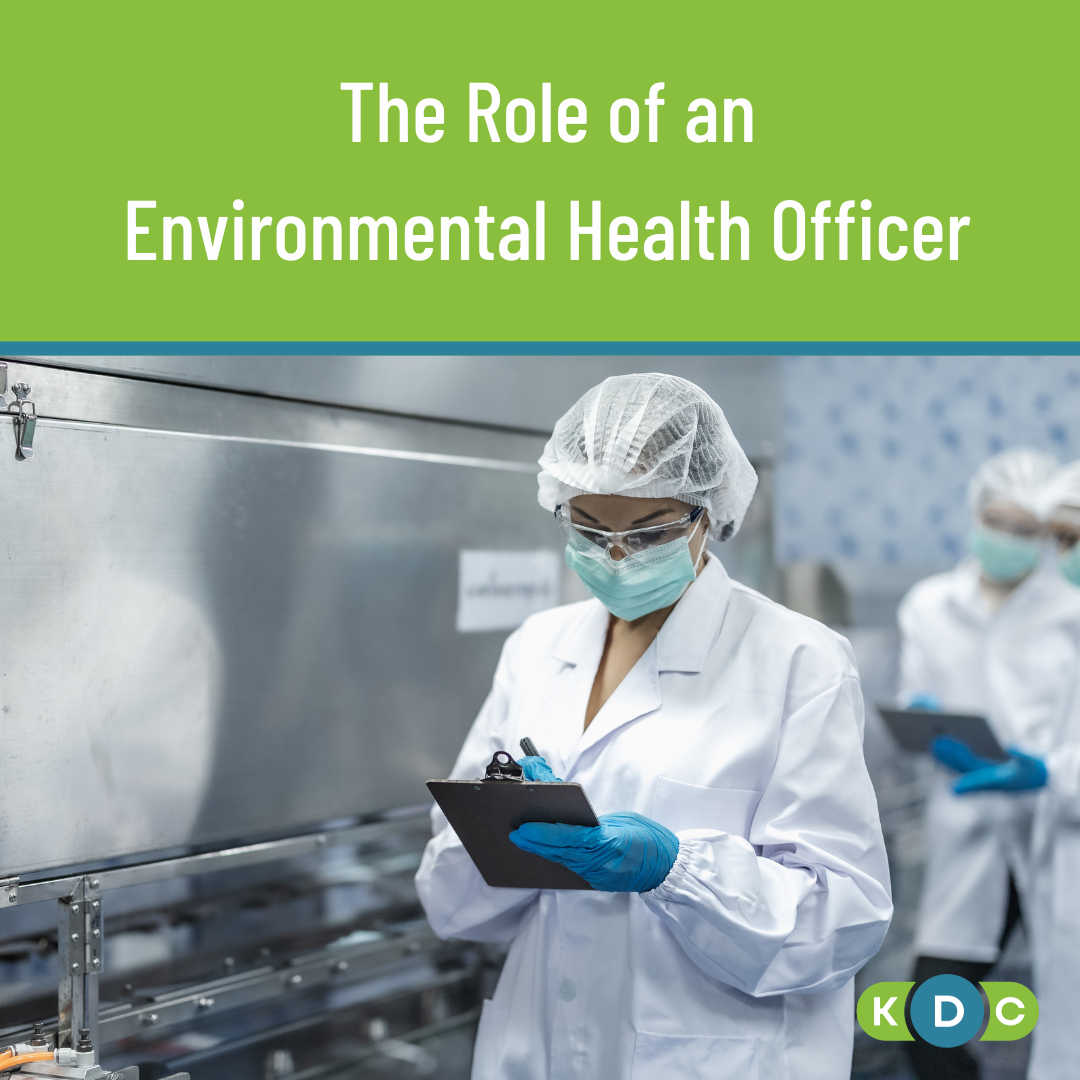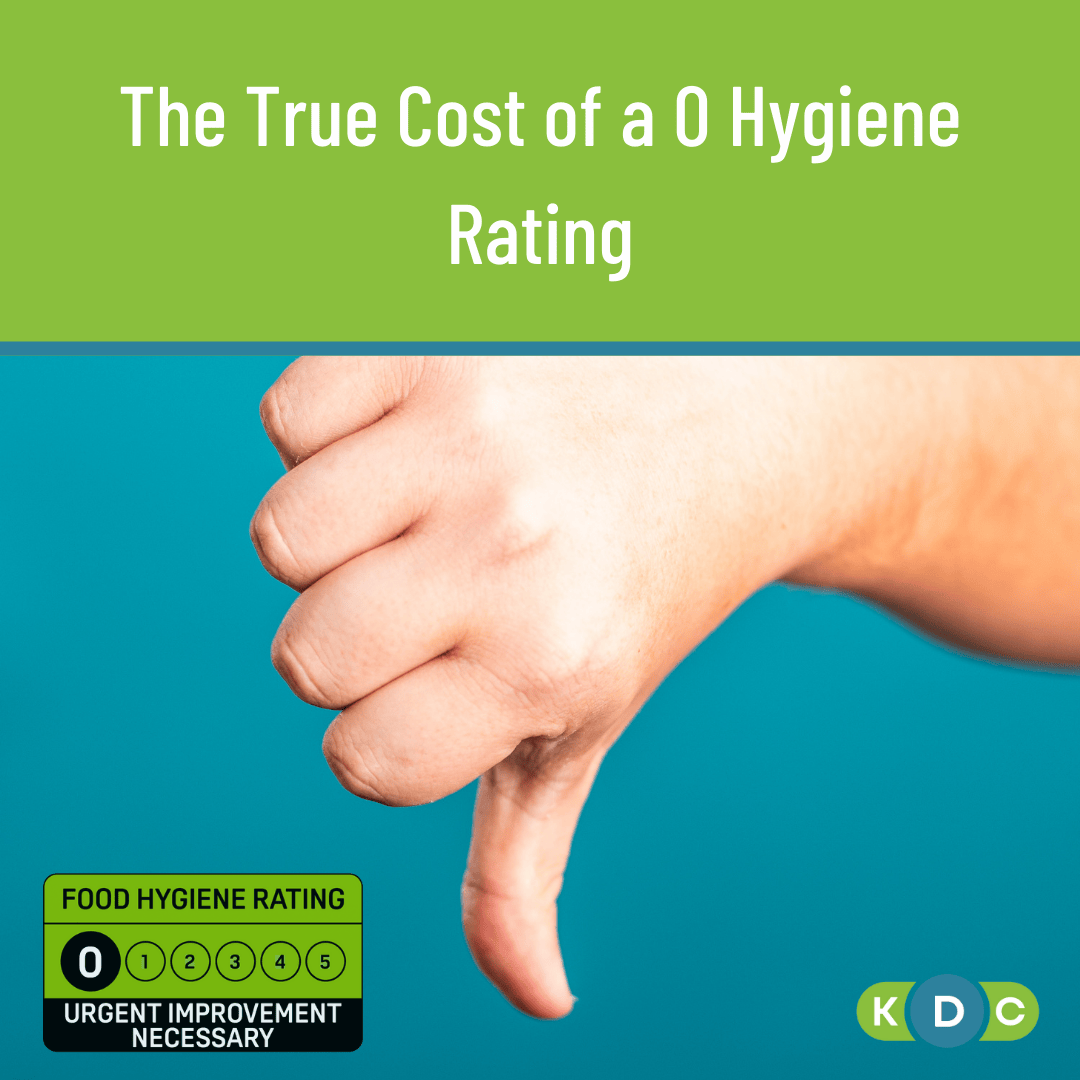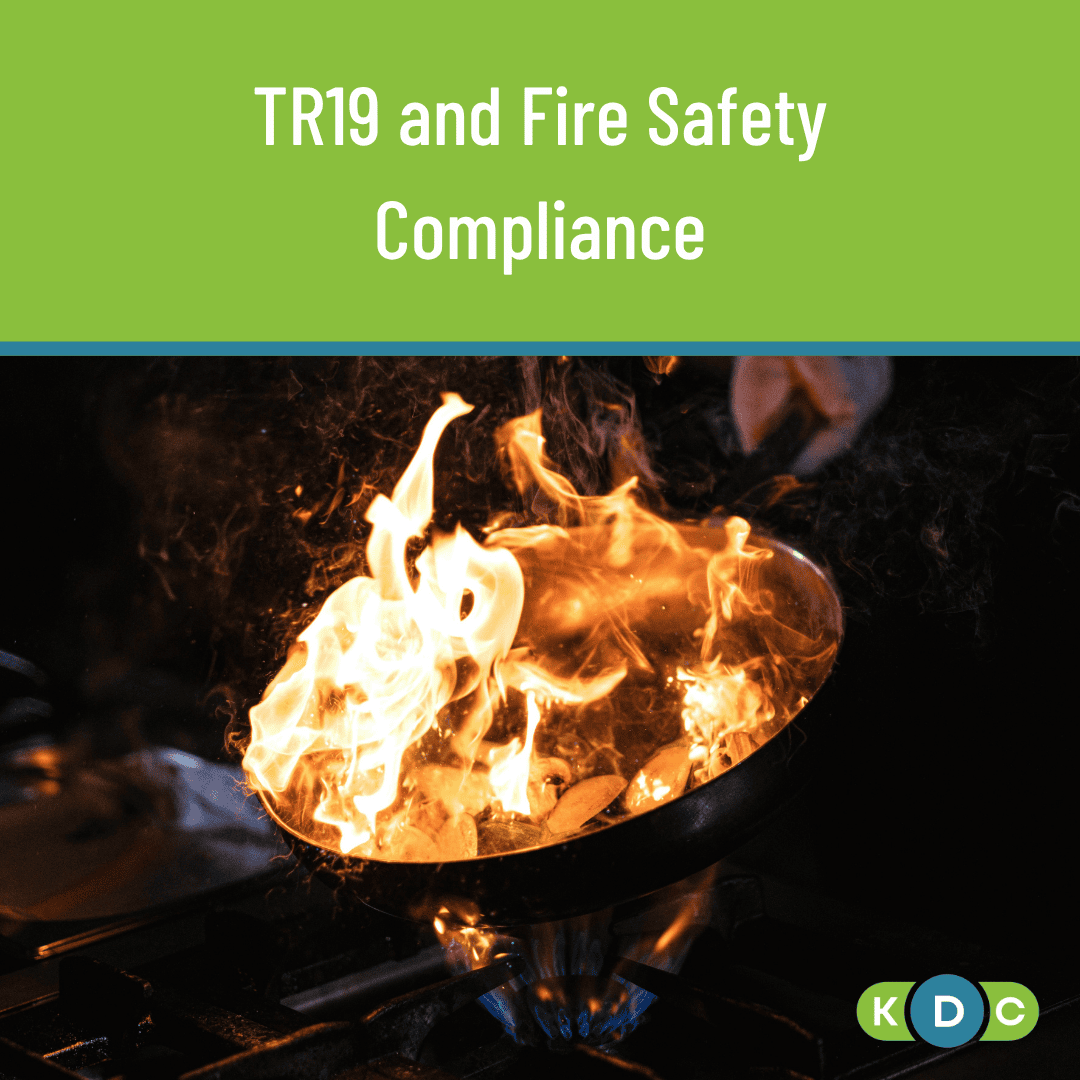TR19 Kitchen Cleaning: Why It Matters More Than Ever In 2025
Guide to TR19 kitchen extraction cleaning standards 2025 − certification requirements, fire safety and cleaning frequencies for UK commercial facilities.
Commercial kitchen facilities are the beating heart of countless UK establishments – from bustling restaurants and hotels to schools, hospitals, nursing homes and stadiums. These demanding environments need proper ventilation to cater to thousands of meals daily, and that’s where TR19 comes in. As the industry standard by BESA, TR19 ensures adequate ventilation, hygiene and fire safety across the board.
But here’s the thing: in 2025, adhering to TR19 kitchen cleaning protocols isn’t just a nice-to-have anymore. It’s become an absolute necessity. With escalating scrutiny and stricter enforcement across the industry, businesses can’t afford to play fast and loose with these standards. TR19 compliance has shifted from recommendation to requirement, and those evolving demands mean you need to stay on top of your game.
Understanding TR19: The Foundation of Cleanliness
To cut through the waffle and get to the heart of it, TR19 is a comprehensive set of guidelines developed by BESA – that’s the Building Engineering Services Association – for keeping ventilation systems properly clean inside.
Now, there are two main documents you need to know about:
TR19® Air focuses on the general cleanliness and hygiene of ventilation systems, which is crucial for maintaining good indoor air quality across your premises.
TR19® Grease is the big one for commercial kitchens. This standalone specification is specifically tailored for kitchen extraction systems, tackling the critical issue of fat, oil and grease particles that love to solidify into nasty deposits within your ductwork. And trust us, that’s a major fire risk management concern.
Here’s a bit of context that might surprise you: TR19® Grease actually evolved from Section 7 of the second edition of TR19 back in 2019. Why the change? Fire officers were raising grave concerns about inadequately maintained systems causing severe fires. The separation ensures a targeted approach for commercial ventilation systems – because frankly, your kitchen extraction needs more attention than your average office air con.
Why TR19® Grease Matters More Than Ever in 2025
Again, the TR19 is no longer a mere “best practice guideline.” It’s become an expected standard and 2025 marks a period of increased enforcement that you can’t ignore.
The Heat Is On
Insurers and regulators are cranking up the pressure. Local fire authorities and Health & Safety Executive auditors are adopting a more stringent, non-negotiable approach to existing standards. No more messing about.
Here’s what’ll really get your attention: insurers are increasingly denying claims related to grease fires if you can’t provide valid TR19 certificates as concrete proof of recent, professional cleaning. That’s right – no certificate, no payout. This reflects a sector-wide shift where certification is absolutely paramount.
Legal Obligations Aren’t Optional
Building operators have a clear legal obligation under health and safety legislation to provide a safe indoor environment for kitchen operators and visitors. Neglect this, and you’re looking at potential accusations of negligence, prosecution, custodial sentences, hefty fines and operational disruptions that could shut you down.
The Covid-19 pandemic showed us just how risky overlooked ventilation can be, and environmental health officers are now actively scrutinising compliance like never before.
Protecting the Responsible Person
Post-clean certification isn’t just paperwork – it’s your shield. It serves as crucial proof of due diligence, protecting the designated Responsible Person from potential prosecution and safeguarding insurance policies. TR19 aligns perfectly with the wider building safety agenda, particularly following the Grenfell Tower disaster and the culture shift driven by the Building Safety Act.
Core Requirements and Best Practices of TR19® Grease
Grease Level Standards That Matter
TR19® Grease doesn’t mess about when it comes to grease deposits in ductwork. A system is compliant if the average maximum grease deposit is no more than 200 microns (0.2mm), with no single point exceeding 500 microns (0.5mm) between scheduled cleans. Any section of the ductwork with grease deposits at or above this thickness requires urgent, immediate cleaning.
Any grease deposits remaining after cleaning a kitchen extraction system must be less than 50 microns (or 0.05 mm) thick for post-clean verification. This standard uses the Deposit Thickness Test (DTT) or Wet Film Thickness Test (WFTT) to scientifically measure the thickness of any remaining grease, ensuring a reduction below the 50-micron threshold to meet fire safety requirements.
Here’s the scary bit: even a relatively thin film of grease can represent a very real fire hazard. We’re talking about deposits that might look manageable, but could go up like a bonfire.
Cleaning Frequency
The recommended cleaning frequency for extraction fans and ductwork depends on how hard you work your kitchen:
- Heavy use (12-16 hours/day): Clean every three months.
- Moderate use (6-12 hours/day): Clean every six months.
- Light use (2-6 hours/day): Clean annually.
No ifs, no buts. Stick to the schedule or face the consequences.
What Gets the Treatment
TR19 regulations cover your entire extraction system:
- Kitchen canopy and extraction hood
- Plenum and kitchen ducting
- Extractor fan and discharge duct
- Fire dampers
- Other extraction systems (dishwashers, etc.)
Regular kitchen canopy cleaning is especially critical, as it traps significant grease and smoke, making it a prime fire hazard if neglected.
The Deep Clean Process
The cleaning methods specified aren’t your average wipe-down. We’re talking about:
- Thorough removal of dry grease using scrapers.
- Application of degreaser onto internal metal surfaces.
- Abrasive pads with degreasing agents and hot water for stubborn layers.
- Wiping to a completely dry finish.
This often requires deep cleaning by experts like us who know what they’re doing.
Design Matters
Poor system design has historically been a nightmare for effective cleaning. Ducts hidden behind solid ceilings, surrounded by risers, or obscured by fittings make access impossible. Designers and installers must collaborate with cleaning specialists from day one, ensuring sufficient access doors and working platforms are incorporated. These are fundamental TR19 kitchen standards UK facilities need to meet.
The Indispensable Role of Qualified Professionals and Certification
Only the Qualified Need Apply
In 2025, you must appoint qualified technicians holding the BESA Grease Hygiene Technician qualification to perform kitchen extract cleaning. Competency ensures work is carried out to the highest standards.
The Vent Hygiene Register Revolution
The old BESCA Vent Hygiene Elite Scheme has evolved into the Vent Hygiene Register (VHR), managed by BESA. Only VHR members are recognised as competent and authorised to provide TR19® Grease-compliant cleaning services. Think of the VHR as the ventilation hygiene equivalent of the mandatory Gas Safe Register – you wouldn’t let an unqualified person touch your boiler, would you?
Certification That Counts
Post-clean certification is the cornerstone of compliance. After each clean, VHR contractors register the work to generate a BESCA certificate detailing cleaning results and confirming compliance with TR19® Grease standards. This is essential evidence for insurance claims and fire reports.
Trust Through Auditing
BESCA meticulously monitors and audits VHR members, reviewing post-clean reports to ensure adherence to their code of conduct. This rigorous oversight provides assurance that work is carried out with integrity.
Choosing a suitably qualified kitchen duct cleaning company like KDC Hygiene Ltd., which issues a TR19® Grease compliance certificate, ensures full compliance with industry best practice.
Beyond Fire Safety: Broader Benefits of TR19 Compliance
Fire protection might be the headline act, but TR19 compliance delivers substantial health and operational advantages that’ll make your accountant smile.
Cleaner Air, Healthier Staff
Regular cleaning removes dust, allergens, mould spores and other nasty contaminants from air ducts. The result? Cleaner, healthier air that reduces respiratory issues, allergies, headaches and fatigue among staff and customers. Remember, good hygiene isn’t just about appearances.
Energy Efficiency That Pays
When debris clogs your system, HVAC systems and fans work harder, consuming more energy. Clean ducts improve airflow, significantly reducing operational costs and helping you hit those net-zero emissions goals everyone’s talking about.
Equipment That Lasts
Regular cleaning prevents excessive strain on ventilation equipment, extending your system’s lifespan by reducing wear and tear. That means fewer premature replacements and more money staying in your pocket.
No More Funky Smells
Effective cleaning mitigates unpleasant odours and drastically reduces mould and condensation risks, which are both known to worsen respiratory issues and create an unpleasant environment for everyone.
Productivity Boost
A healthier indoor environment from cleaner air has been scientifically proven to boost workplace productivity. Happy, healthy staff work better – it’s that simple.
Staying Compliant: Your Action Plan for 2025 and Beyond
Get Your Schedule Sorted
Schedule routine inspections with regular assessments to proactively identify areas needing attention. Don’t wait for problems to find you.
Keep Your Paperwork Tight
Maintain documentation of all activities, including comprehensive hygiene logs, to satisfy HSE audits and demonstrate compliance to authorities and insurers. Digital platforms can make this much easier.
Monitor Performance
Keep tabs on your ventilation system’s airflow efficiency to ensure it’s operating at peak cleanliness and performance levels.
Train Your Team
Train staff on best practices for ventilation hygiene to help maintain cleanliness between professional cleans. An educated team is your first line of defence.
Plan Ahead
For refurbishment or new builds, involve ventilation hygiene experts during the new design stage. Proper accessibility for future cleaning and maintenance is essential.
Time to Get Serious
For 2025 and beyond, TR19 compliance – particularly for kitchen extraction cleaning – isn’t just important, it’s paramount for the safety and success of any commercial kitchen. The benefits are clear: unparalleled fire prevention, robust insurance coverage, stringent legal compliance and enhanced operational efficiency.
Ready to ensure your kitchen meets the highest standards of grease hygiene and safety? Here at KDC Hygiene Ltd., we’ve always met the standards expected under TR19, Section 2, and continue to do so under TR19® Grease.
Contact us today for expert kitchen extract cleaning services that’ll keep you compliant, protected and operating smoothly.














